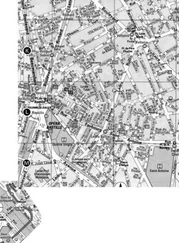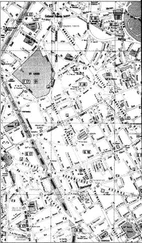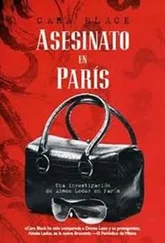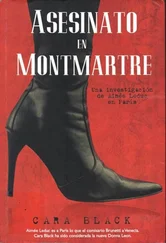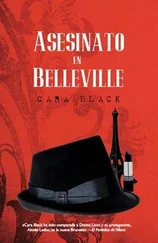“Merci, ” the old woman replied, her manners taking over. “But I must go.”
Out of the corner of Aimée’s eye, she saw people huddled in the doorways in Place de Clichy, shielding themselves from the hail with their umbrellas.
“Of course. Drink some tea and go when the hail stops. Right now, it’s too dangerous; you might slip on the pavement.”
Cornered, the woman nodded. Despite her slight build, Aimée imagined a rod of steel in her backbone. She was strong, like the bamboo which swayed in the wind but clung with tenaciousness rooted in rock.
“My name’s Aimée Leduc, I know Monsieur de Lussigny through business,” she said, desperate to establish familiarity. “He told me his father died last month. So sorry to hear that. And now, his brother-in-law is gone, too!”
The woman clasped her cup and took a single sip. Perhaps this was a good sign. From around them came the orders shouted by the waiters.
“And so sad for you, I’m sure,” she said. “Madame . . . ?”
“Madame Nguyen. I live in France long time,” she said. “Know Métro very good. I take Métro home.”
Try anything, Aimée told herself, to get this woman to stay and talk.
“Madame Ngyuen. You look too young to have a grandson! He’s just a boy you take care of, isn’t he ? ”
A smile escaped the woman. She displayed a full set of white-capped teeth. “My great -grandson. Michel, good boy.”
“I can’t believe that,” Aimée said, hoping she wasn’t laying it on too thick. “Impossible!”
“Possible. My granddaughter his mother,” Madame Ngyuen said, nodding.
“You help her,” Aimée said. “She’s lucky!”
“I raise her, too.” There was an enigmatic expression on her face.
“But how? Non , you have so much energy, like a young woman.”
She nodded. “More energy in my country.”
“So your granddaughter works . . . ?”
“Nadège. She stays somewhere else.”
Nadège. The other name Thadée had uttered.
“How can I find her?”
“Don’t know. I take care of Michel now.”
“Of course, but—”
“Gone,” she shook her head. “In Indochina I run big house with servants, all day, and raise five children, too. Dead, all dead now.”
“I’m so sorry,” Aimée said. “Did that happen here, or in Indochina?”
“Indochina, long time ago,” she said.
“I’m practicing meditation at the Cao Dai Temple,” Aimée said. “Trying to. The nun Linh helps me. But I’m sure you know her, non ?”
Madame Nguyen’s eyes narrowed. “Eh, what you mean?”
“I mean Linh’s so helpful. Do you know the nun I’m referring to?”
“No temple. Pray at home.”
Disappointed, Aimée tried another tack. She remembered the few Vietnamese words she’d learned. “ Má ,” she said. She hoped it was close to the Vietnamese word for mother.
“Inflection wrong,” Madame Nguyen said, shaking her head. “Listen, ‘ ma’ can mean ghost, má mother, mà because,  rice seedling,
rice seedling,  tomb or
tomb or  horse.”
horse.”
“What’s the word for dragon?”
Madame Ngyuen looked away. “You nice French lady. Not like most gweilo.”
“Gweilo ?”
“ ‘White devil,’ but meant in nice way,” she said.
“Isn’t that Cantonese?”
Madame Nguyen nodded. Her black hair shone. She wore no ornament this time, just a tight bun, with small jade dots in her long lobes.
“Indochina all China once,” she said. Shrugged. “Rape and rule like all conquerors. We kick Mandarins out in tenth century. People stay.”
This could be an opening, Aimée thought.
“They looted emperor’s tombs, didn’t they?” she said, eager to keep the woman talking. She pulled out the auction catalogue page. “And stole things like this. Or was it the French?”
Aimée saw her companion shrink back against the leather banquette.
“Do you recognize this treasure? Weren’t the Cao Dai guarding it?”
No answer. Madame Nguyen still stared at the photo of the jade figures.
“Take your order now?” a waiter asked.
Madame Nguyen shook her head.
“Give us a few more minutes, please,” Aimée said.
The waiter shook his head and walked away.
“Thadée gave me this before he was murdered.” Aimée leaned closer and showed her the disk she held in the palm of her hand. “But I don’t understand why. You said the dragon symbolizes—”
“He give you this?”
Aimée nodded.
“Don’t understand.”
For a moment, Aimée thought she saw fear in the old woman’s eyes.
“Neither do I, Madame Nguyen,” she said.
“No good. Belong to Vietnam.”
“The Cao Dai nun, Linh, wants to thank the man who saved her father’s life at Dien Bien Phu.”
Madame Nguyen said something in Vietnamese.
“What’s that?” Aimée asked.
“Hiêú,” she nodded. “Filial respect. Confucian way. Not like him , the owner’s warlord uncle.” Her face crinkled in disgust. “Warlord, steal land.”
Aimée stared. “You mean the owner of this restaurant?”
“No respect for emperor.”
Aimée knew the deposed Vietnamese Emperor Bao Dai had lived in French exile since the 1950s. She remembered that much from studying for the History section of the Bac. Did this relate to the looting of the emperor’s tomb?
“Could the owner’s uncle have looted a tomb in Dien Bien Phu?”
“Grave robbers never change.”
A cell phone beeped somewhere under the table.
Madame Nguyen pulled out the smallest cell phone Aimée had ever seen.
“Oui . . . allô ,” she said. She blinked several times as she listened, the lines around her mouth tightening.
Bad news?
Madame Nguyen stood. “Must go. Michel have school trip earlier. Must go.”
“Let me find you a taxi,” Aimée said, rising and laying some francs on the table.
Outside, by some karma Aimée figured she or Madame Nguyen had earned, a taxi idled at the stand. She helped the old woman inside. “Take my card; I’m trying to find this jade. Perhaps you may be able to help me.”
Madame Nguyen’s face remained expressionless. But Aimée thought she’d mask her terror, having been well-schooled in concealment in Indochina. Disappointed, Aimée closed the door, and the taxi took off. She remembered her coat left inside the resto and ran back for it. The waiter handed it to her, his mouth turned down in a frown.
“I’m sorry we aren’t staying for lunch,” Aimée said.
“She never eat here,” he said. “Understand.”
“Pardon, but what do you mean,” she asked surprised. “You know Madame Nguyen?”
“Cochin Chinese have long memory. Like elephant.”
“But Madame Nguyen—”
He lapsed into what Aimée took for a Southern Chinese dialect. Several of the waiters around him laughed. Rude and disgruntled, she figured, since she’d taken up his time.
“They’re not saying nice things,” said a frowning young Asian woman, seated by the aquarium. “I’m sorry. No need to act rude, people change their minds.”
“What are they saying?”
“Forget it,” the young woman said. “They’re nervous underneath.”
“But why?” Aimée asked.
The young woman’s frown deepened. “They’re saying the health department visited last week. One man says he’s afraid the health department will close the restaurant and then he’ll be out of a job.”
Читать дальше
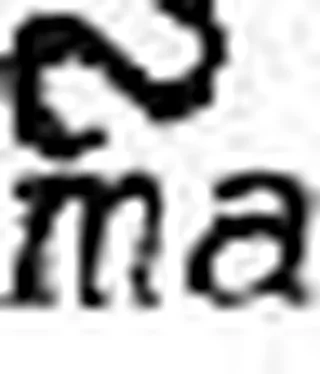
 rice seedling,
rice seedling,  tomb or
tomb or  horse.”
horse.”
